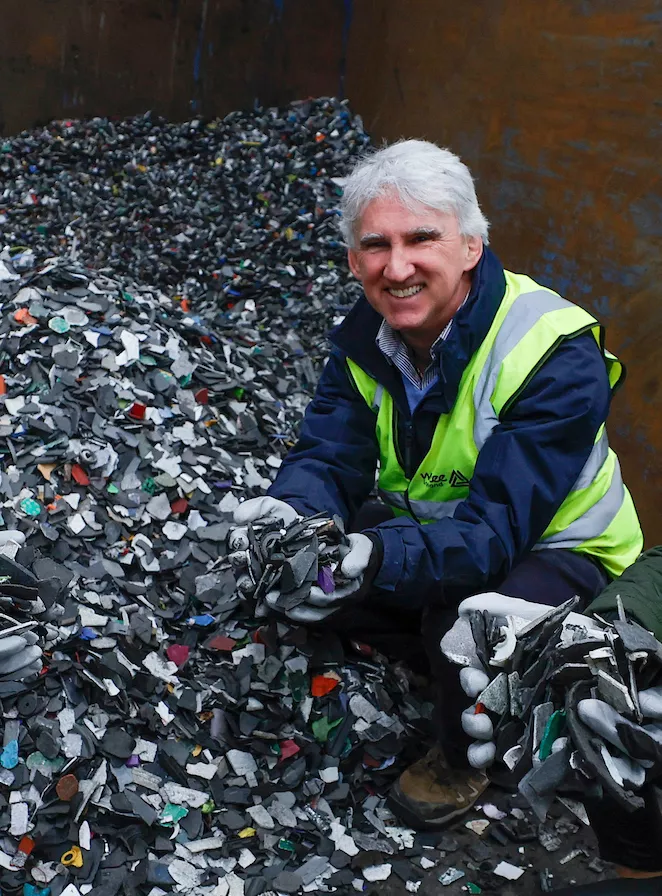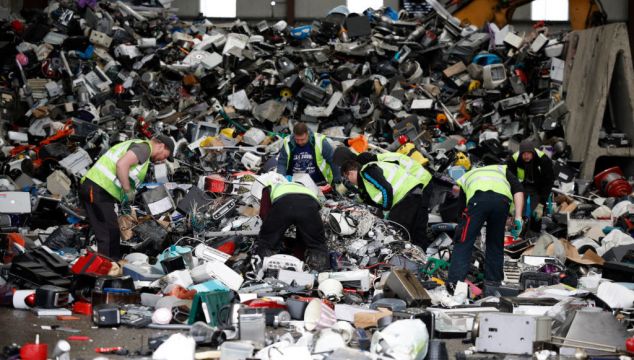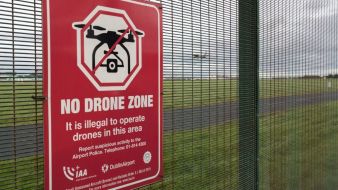Ireland and other European nations risk jeopardising green energy sources if they fail to hit upcoming EU targets to recycle critical raw materials, according to an Irish waste recycling scheme.
Electric vehicle batteries, wind turbines and solar-power generators all require components such as lithium, magnesium, copper and nickel but Europe is currently importing the vast majority of the rare earth materials it uses, according to Waste Electrical and Electronic Equipment (WEEE) Ireland.
The not-for-profit organisation’s 2022 annual report shows consumers recycled a record number of e-waste items last year – 40,804 tonnes or just over 10kg per person.
A total of 19.5 million appliances were recovered – including 113,000 fridges, 225,000 TVs and monitors, 2.2 million lighting items and the equivalent of 60 million used AA portable batteries.
But the country’s largest e-waste recycling scheme warns that we also need to meet a forthcoming EU target to recycle at least 15 per cent of our annual consumption of critical raw materials from this e-waste.
WEEE Ireland’s chief executive officer said recent global events and the energy crisis have “underscored the vulnerabilities of relying on other countries for critical raw materials”.
Leo Donovan said the EU currently imports 93 per cent of its magnesium and 86 per cent of its rare earth metals from China.
He added: “We need secure and sustainable sources of these materials within the EU or we risk jeopardising the supply of vital technologies required for our green and digital transitions.
“As the world embraces a more sustainable future and shifts away from fossil fuels, the demand for lithium alone, a vital component in batteries that power every day technology and devices, is projected to increase twelve-fold by 2030.”
The EU aims to ensure that by 2030, at least 15 per cent of the critical raw materials consumed annually originate from European recycled sources under the forthcoming Critical Raw Materials Act.
Mr Donovan said: “Old and broken electronics and appliances are a rich source of essential critical raw materials, so it is vital that Irish households recycle the millions of broken and perfectly recyclable electrical items that are accumulating in our homes or being improperly disposed of.”
Mr Donovan pointed to a collaboration with KMK Metals Recycling in the midlands as an example of ensuring e-waste is recycled into secondary critical and strategic materials.
“Last year, we got more out of these recovered items than ever before,” he added.

The annual report shows 52 per cent of electrical waste was collected from retailer sites in 2022, 24 per cent from local public collection days, but only 24 per cent from local authority sites – significantly lower than the 60 per cent average in other European countries.
Ireland fell short of Europe’s 65 per cent takeback target for overall e-waste, measured against new appliance sales, which surged by an average 25kg per person last year, up from 22kg in 2021.
On battery recycling, Ireland surpassed the EU’s 45 per cent target for waste portable batteries.
Mr Donovan said recycling centres and retailers are easily accessible to everyone, adding WEEE Ireland holds public collection days each week.







